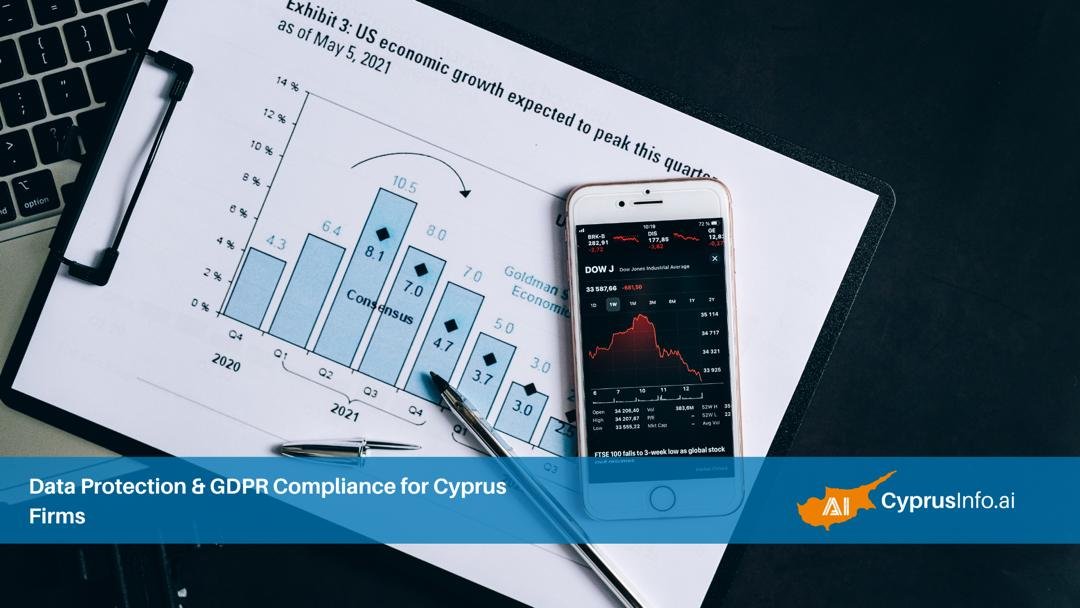Data Protection & GDPR Compliance for Cyprus Firms
For any modern business, the protection of personal data is a legal and ethical necessity. In Cyprus, the regulatory framework for data protection is robust, with the **General Data Protection Regulation (GDPR)** at its core. Compliance with GDPR is not just a legal requirement but a crucial part of building trust with clients and stakeholders. This guide will provide a detailed look at data protection and GDPR compliance for firms in Cyprus, covering the key requirements, the role of the Commissioner, and the steps for ensuring data privacy in 2025. For a broader overview of the local business environment, you can read our guide on The AI-Powered Marketer: Business Adviser. You can also explore our guide on Cyprus Company Registration: A Step-by-Step Guide 2025.
1. The Legal Framework: The GDPR and Local Law
The **General Data Protection Regulation (GDPR)** is a European Union law that is at the heart of data protection in Cyprus. The regulation provides a comprehensive framework for the collection, processing, and use of personal data. The GDPR is a binding law that applies to all companies that process the personal data of EU citizens, regardless of where the company is located. In Cyprus, the GDPR is enforced by the Commissioner for Personal Data Protection. The local law, the Processing of Personal Data (Protection of Individuals) Law, has been amended to be fully compliant with the GDPR. This ensures a consistent and predictable legal environment for businesses. You can find more information about this in our FAQ Guides section.
2. Key Principles of GDPR Compliance
To ensure compliance with the GDPR, a firm in Cyprus must adhere to a number of key principles. These principles are a central part of the legal and ethical framework for data protection and are a key factor in building trust with clients and stakeholders. The main principles are:
Lawfulness, Fairness, and Transparency
Personal data must be processed lawfully, fairly, and in a transparent manner. This means that a firm must have a legal basis for processing personal data, such as a consent, a contract, or a legal obligation. The firm must also be transparent about how it processes personal data and must provide a clear and concise privacy policy. For more on the local business environment, you can check out our guide on Cyprus Company Formation Requirements for Foreigners.
Purpose Limitation and Data Minimization
Personal data must be collected for a specific, explicit, and legitimate purpose and must not be processed in a manner that is incompatible with those purposes. The data must also be limited to what is necessary for the purpose of the processing. This is a very important part of the legal and ethical requirements and is a key factor in protecting the privacy of clients. You can also explore our business directory of all businesses. You can also find a suitable professional corporate services firm in our directory.
Accuracy and Storage Limitation
Personal data must be accurate and kept up-to-date. The firm must take all reasonable steps to ensure that inaccurate data is corrected or deleted. The data must also be kept for no longer than is necessary for the purposes for which it was processed. This is a very important part of the legal requirements and should be handled by a professional. For more on the local tax system, you can explore our guide on Cyprus Corporate Tax.
3. The Role of the Commissioner for Personal Data Protection
The **Commissioner for Personal Data Protection** is the independent supervisory authority in Cyprus that is responsible for enforcing the GDPR and the local data protection laws. The Commissioner has a number of powers, such as the power to conduct investigations, to issue fines and penalties, and to order a firm to comply with the law. The Commissioner is a crucial part of the regulatory framework and is a key factor in ensuring that firms are legally compliant. You can also get more help on Cyprus Non-Dom Status in our guide. You can also explore our business directory of accounting and auditing firms.



